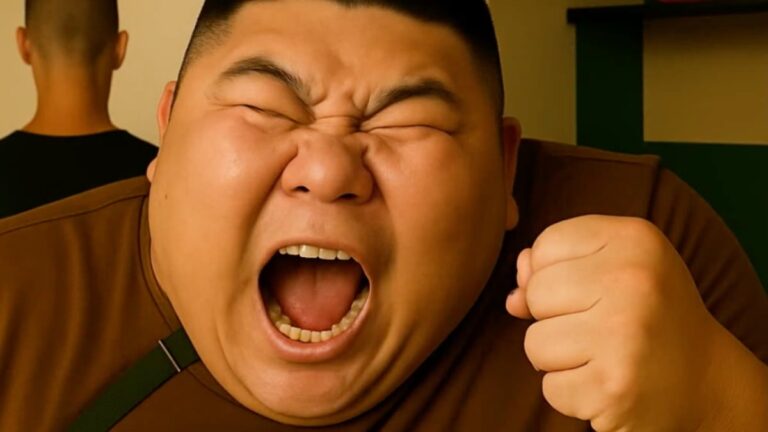Is this really what Chatgpt thinks or me?
A man angry and without a beard with nothing in his life but a roommate and a false pumpkin on a shelf?

The original …
Credit: Timothy Beck Werth / Mashable

… and the final result. (Image generated by AI)
Credit: Chatgpt
You may have the last image trend of viral chatpt: “Create an exact replica of this image, do not change anything.” Then, users redo that processing 99 times more, with the image changing slightly in each iteration. People have leg plugs in their own photos to test the results, and a mutant image of Dewayne “The Rock” Johnson has also gone viral in Reddit and X. When it makes a copy of a copy, the results are naturally degraded over time. And after 100 iterations through chatgpt, the results can be really strange.
To cite a famous Rick and Morty Episode, “and far enough in the line … there are monsters.”
Mashable light speed
For critics of AI, this trend is proof that when the AI models trains in its own production, the final result is an infinite slope: an artificial intelligence of Ouroboros. But is that really what is happening here?
I decided to try the trend myself, and in doing so, I realized that this trend is not all that is broken. I tried to connect this notice to Chatgpt using model 4, and repeatedly refused to replicate my photo without changes. “I can’t make an exact copy of the image, but I can generate a new and very similar version using AI based on its content,” said the Chatbot AI. And when I pressed, he still refused, saying: “I understand your application, but I can’t create a exactly Replica or a photo. “
I could finally make the chatbot make my offer using the OpenI API and the notice I mentioned above. And the results are typical of similar experiments.
I asked Openai about this trend, and I will update this publication if I receive news. But based on my attempts to replicate the replication trend outside the API, it seems clear to me that Chatgpt is not really trying to create an exact replica of users’ photos in the first place.
Disclosure: Ziff Davis, Mashable parent company, filed a lawsuit against Openai in April, claiming that he violated the copyright of Ziff Davis in the training and operation of his AI systems.
Topics
Artificial Intelligence Chatgpt


